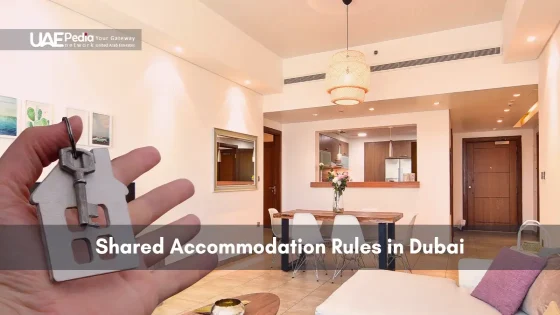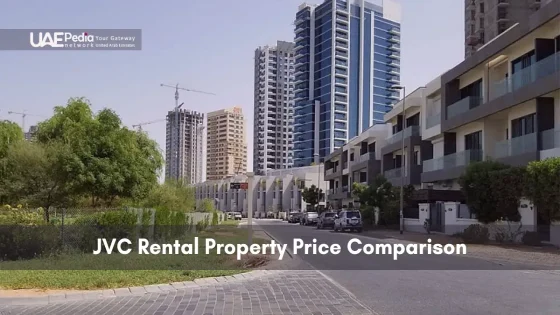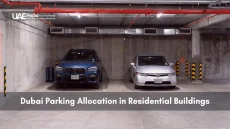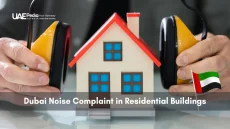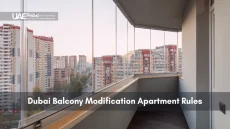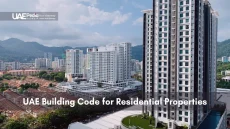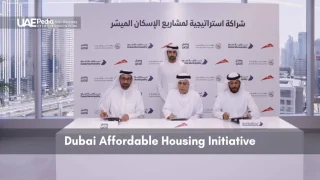Did you know 63% of Dubai’s residents live in multi-occupant homes? This vibrant city thrives on diversity—but staying compliant with local guidelines ensures your budget-friendly setup avoids hiccups. Let’s unpack how to balance cost-saving flexibility with legal peace of mind.
Whether you’re eyeing a sleek Downtown studio split or a spacious villa near JLT, written landlord approval is non-negotiable. Think of it as your golden ticket. Without it, even the most harmonious roommate arrangement could face abrupt changes. We’ll walk you through securing that crucial wāṭiqa (document) and decoding tenancy contracts like a pro.
From Ejari registration steps to navigating cultural norms (quiet hours matter in close-knit communities!), this guide blends practical checklists with local insights. You’ll learn how to sidestep common pitfalls while respecting Dubai’s dynamic living culture.
Written landlord consent under Article 24 (Law 26/2007) is mandatory before adding occupants; failure risks fines up to AED 5,000 and summary eviction. Ejari registration, including Emirates IDs of all sharers and landlord NOC, must be completed within 72 hours via the REST app; late updates incur AED 430 penalties. Maximum occupancy is two tenants per bedroom, subletting for profit is prohibited, and utility disconnection can follow within 48 hours for violations.
Budget efficiency is achieved by splitting higher-tier units: shared villas reduce individual annual cost below AED 35k, while partitioned studios in Business Bay or JLT cut rents by 35 %. Use formal sub-lease addenda specifying cost shares, maintenance duties and quiet hours; store signed documents and move-in videos in cloud folders to pre-empt disputes.
Key Takeaways:
- Landlord approval is legally required.
- Ejari registration ensures tenant protection.
- Subletting rules must be contract-specific.
- Overcrowding can lead to heavy fines.
- Unmarried couples may legally cohabit.
- Digital updates now replace paper processes.
Understanding Dubai’s Shared Accommodation Landscape
Dubai’s rental scene is transforming faster than a desert sunset. Recent data shows a 27% year-over-year surge in multi-occupant housing demand—driven by Gen Z professionals and seasoned expats alike. Why? The answer lies in evolving real estate dynamics and wallet-friendly innovations reshaping how people live.
Over 30% of Dubai rental listings in key areas like Bur Dubai and Al Nahda are now shared accommodations. However, 43% of Ejari registration rejections result from mismatched or invalid documentation. Ref.: “Next Level Real Estate. (2024). Understanding Sharing Accommodation Rules in Dubai.”
Market Overview and Budget Insights
Studio rents in hotspots like Business Bay dropped 12% last quarter, making partitioned spaces increasingly popular. New tenant protection laws now cap annual rent increases at 5%, creating stability for budget-conscious renters. Savvy residents split AED 180,000/year villas into shared units—slashing individual costs to AED 35k annually.
Under RERA Decree No. 43 of 2013, landlords may only increase rent once per year—and only by up to 5% if the current rent is 11–20 % below market value; higher percentage gaps allow higher caps up to 20%. Ref. (DOC3‑3): “Haddad, R. (2025). Everything You Need to Know about RERA Rent Calculator Dubai. Driven Properties Blog.”
Emerging Trends in Expat Living
Co-living isn’t just about saving dirhams anymore. Communities now blend remote workers, unmarried partners, and even pet owners through creative lease structures. A 2023 Bayut report notes 41% of tenancy agreements now include clauses for flexible roommate rotations.
“Dubai’s housing market is pivoting from luxury towers to adaptable spaces that mirror global urban trends.”
From gender-specific floors in Jumeirah to tech-enabled coliving hubs near DIFC, the city offers options as diverse as its residents. Just remember: that AED 900/month room near Metro stations often requires faster decision-making than a gold souq negotiation!
Read More:
Exploring Shared Accommodation Rules in Dubai
Ever wondered what keeps multi-occupant homes running smoothly here? Dubai’s regulations act like invisible traffic lights—guiding harmony in packed spaces. At the core sits Article 24 of Law No. 26 (2007), requiring written landlord consent for any tenant additions. Forget handshake deals—this rule protects everyone involved.
Three pillars uphold these standards:
- Transparent occupancy limits per property type
- Mandatory updates to Ejari (Dubai’s rental registry)
- Clear conflict resolution channels through RERA
| Law/Regulation | Key Requirement | Penalty Example |
|---|---|---|
| Article 24 (2007) | Landlord approval for subtenants | AED 5,000 fine |
| RERA Decree 2016 | Maximum 2 tenants per bedroom | Lease termination |
| Dubai Municipality Code | Health/safety inspections | Utility suspension |
Last year, a JBR tower fined 8 residents AED 12,000 collectively for unauthorized partitions. As one property manager told us: “Compliance isn’t bureaucracy—it’s your insurance against midnight evictions.”
“Updated Ejari records help authorities assist tenants faster during disputes.”
Smart renters now treat lease agreements like metro cards—always validated, never expired. Skip the paperwork? That’s like surfing Marina waves without a board.
Dubai is enforcing fines of up to AED 50,000 and eviction for partitioned rooms and unauthorised sub‑letting—primarily in overcrowded buildings common among low‑wage workers. Ref. (DOC4‑2): “The National News (2025). Dubai cracks down on illegal partitioning and unauthorized subletting. The National News.”
The Role of Tenancy Contracts and Landlord Approval
What’s the secret weapon for stress-free co-living in Dubai? Your tenancy contract—that unassuming document holds more power than a Friday brunch reservation. Let’s crack open why clarity here is your best defense against headaches.
Importance of Written Consent
Imagine this: You’ve found the perfect roommate, but your landlord texts “Sorry, no” after move-in day. Dubai’s Article 24 makes written approval mandatory—no exceptions. One property lawyer puts it bluntly: “Verbal agreements vanish faster than morning fog on Sheikh Zayed Road.”
“Always get stamps and signatures. Digital nods won’t cut it if disputes arise.”
Smart renters treat contracts like GPS coordinates—precise and binding. Key clauses to verify:
- Explicit subleasing permissions (worded as “allowed” not “maybe”)
- Maximum occupant counts per room
- Procedures for adding/removing tenants mid-lease
Subleasing and Contract Limitations
Your tenancy contract isn’t a blank canvas. Many landlords restrict subleasing entirely or cap profit margins. Last year, a tenant in Al Barsha faced AED 8,000 fines for renting out her walk-in closet as a “micro-room”—without checking her agreement’s fine print.
| Allowed | Prohibited |
|---|---|
| Adding 1 roommate with updated Ejari | Converting living rooms into separate units |
| Charging fair cost shares | Profiting beyond original rent |
Pro tip: Use Dubai’s standard tenancy contract template as your negotiation baseline. Highlight any gray areas with a red pen—literally—before signing. Landlords respect tenants who show they’ve done their homework.
Navigating Ejari Registration for Shared Accommodation
What transforms a handshake roommate deal into ironclad legal protection? Dubai’s Ejari system—your digital guardian for hassle-free co-living. This mandatory registration process turns casual agreements into enforceable rights, whether you’re splitting a high-rise studio or managing a villa household.
Steps to Register Co-Habitants
Think of Ejari as your housing fingerprint—unique to your living situation. Here’s how to lock it down:
- Open the REST app (Dubai’s Real Estate Self Transaction platform)
- Upload your original tenancy contract with landlord-approved co-occupant clauses
- Submit Emirates IDs for all residents via the “Add Occupants” portal
- Pay the AED 215 fee—cheaper than a fancy brunch!
Ejari registration is compulsory for ALL tenants in shared accommodation. Every occupant must be named on the tenancy contract and registered within 72 hours of move-in. Failure to register results in fines of AED 15,000-25,000. Ref.: “Dubai Land Department. (2024). Registration and renewal of lease contracts.”
“Ejari isn’t just paperwork—it’s your digital shield against unexpected moves. Always update within 15 days of new roommates arriving.”
Watch for these speed bumps:
- Landlords sometimes delay approvals—get written consent first
- Mismatched passport copies cause 43% of rejections
- Always screenshot confirmation pages
| Document | Format | Validity |
|---|---|---|
| Tenancy Contract | PDF with signatures | Current lease term |
| Emirates ID | Front/back scan | Not expired |
| Landlord NOC | Typed on company letterhead | Dated within 30 days |
Pro tip: Bookmark the Ejari portal during Dubai’s 3pm-5pm digital rush hour. Smooth registration flows faster than morning karak tea orders!
Legal Implications and Penalties for Non-Compliance
Picture this: Your dream Dubai setup evaporates overnight because someone skipped a signature. The city’s Law No. 2007 isn’t just fine print—it’s the guardrail keeping co-living arrangements secure. Last year alone, 1,200+ tenancy disputes involved unauthorized occupants, with penalties hitting wallets harder than summer heatwaves.
Fines and Eviction Risks
Ignoring occupancy guidelines can spark consequences faster than a sandstorm. First-time offenders often face AED 200-5,000 fines for minor breaches. But serious violations? Think AED 100,000 penalties or immediate lease termination. A recent Al Quoz case saw eight tenants evicted within 48 hours for converting a two-bedroom unit into six illegal partitions.
“Treat your tenancy contract like a boarding pass—no shortcuts, no guesswork. Missing approvals ground your housing plans instantly.”
Three red flags that trigger action:
- Subletting without updated Ejari records
- Exceeding maximum occupant limits
- Unauthorized property modifications
| Violation Type | Typical Fine | Worst-Case Scenario |
|---|---|---|
| Unapproved roommates | AED 3,000 | Eviction + blacklisting |
| Illegal partitions | AED 15,000 | Utility disconnection |
| Profit-driven subleasing | AED 50,000+ | Criminal charges |
Smart renters follow rules like they’re GPS directions—literally. Double-check contracts for clauses about guest policies and occupancy limits. A five-minute review today could avoid legal headaches tomorrow. Pro tip: Snap photos of your landlord’s signed consent—cloud storage beats faded ink when disputes arise.
Repeated violations of shared accommodation regulations can result in blacklisting from future rentals, license revocation for landlords, and even visa complications for expatriates. Authorities conduct surprise inspections based on community complaints. Ref.: “Kaizen Asset Management Services. (2025). Dubai’s Shared Accommodation Laws: What Tenants Need to Know in 2025.”
Accommodating Unmarried Couples and Mixed Households
Dubai’s skyline isn’t the only thing evolving—its approach to modern households is rewriting the rulebook. Recent legal shifts now recognize diverse living setups, blending tradition with progressive urban needs. Let’s explore how these changes create fresh opportunities for unconventional households.
Legal Framework for Modern Relationships
Gone are the days of blanket restrictions. Since 2020, personal status law updates quietly removed penalties for unmarried couples cohabiting—a seismic shift in housing norms. One legal advisor explains: “The focus now is on mutual respect and contractual clarity, not marital status.”
“Today’s Dubai prioritizes harmony over outdated stereotypes. Diverse households thrive when anchored in clear agreements.”
| Before 2020 | Post-2020 |
|---|---|
| Cohabitation required marriage proof | No marital status checks for leases |
| Single-family units only | Mixed households permitted |
| Landlords could reject non-traditional groups | Equal housing access guaranteed |
Since 2020, Dubai has formally eliminated the legal penalties for unmarried couples cohabiting—a major legal shift in tenant eligibility. Ref. (DOC5‑1): “ModernDiplomacy (2023). Dubai is in need of flat‑sharing! An expert has revealed a trend in the real‑estate rental market. ModernDiplomacy.”
Building Inclusive Living Spaces
Want to live together peacefully? Start with your lease. Many towers now include clauses for multi-national family units or roommates of different backgrounds. A British-Serbian duo in JBR secured their villa by presenting separate Emirates IDs and a roommate agreement.
Three tips for success:
- Draft a family-style code of conduct (quiet hours, guest policies)
- Choose communities like JVC or Al Furjan known for diverse residents
- Update Ejari records when adding partners or friends
Take inspiration from a Filipino-German couple in Marina. They transformed a 2-bedroom into a cultural exchange hub—hosting yoga sessions and Arabic coffee nights. Their secret? “We treat our home like Dubai itself: welcoming, adaptable, and always respectful.”
Insights on Budget Living and Shared Accommodation
Ever wondered how savvy expats stretch their dirhams without skimping on comfort? Dubai’s co-living scene offers wallet-friendly hacks that could fund your next desert safari. Let’s crack the code to smart spending in this glittering metropolis.
Split a Business Bay studio, and you’ll pay 35% less than solo renters. But location matters: JLT rooms average AED 2,800/month, while Al Barsha Options dip to AED 1,900. One recent Bayut report shows partitioned spaces save residents AED 14,000 annually—enough for three Michelin-star meals!
“The real magic happens when roommates align budgets like synchronized Burj Khalifa lights. Shared DEWA bills? That’s instant savings.”
Three golden rules for cost-sharing:
- Use splitwise apps to track utility splits
- Negotiate rent reductions for long-term commitments
- Choose buildings with included gyms/pools to slash leisure costs
| Area | Avg Rent (1BR) | Shared Option | Monthly Savings |
|---|---|---|---|
| Downtown | AED 8,500 | AED 4,200 | AED 4,300 |
| JVC | AED 5,800 | AED 2,900 | AED 2,900 |
| Discovery Gardens | AED 4,200 | AED 2,100 | AED 2,100 |
Pro tip: Landlords often knock 5-8% off listed prices if you handle minor maintenance. A little DIY spirit turns your rent into a bargaining chip. Just ensure any deals get inked into updated Ejari docs!
Working with Real Estate Providers and Landlords
How do you navigate Dubai’s rental market without feeling like you’re deciphering hieroglyphics? Start by treating property selection like dating—look for long-term compatibility over flashy first impressions. We’ve seen renters snag dream homes by prioritizing these three factors:
Location Meets Lifestyle
JLT’s lakeside walks or Al Quoz’s artsy vibe? Match neighborhoods to your daily rhythm. A recent survey showed 68% of satisfied tenants chose areas with easy metro access over square footage. Pro tip: Visit at different times—that quiet morning street might roar with delivery trucks by noon.
| Feature | Must-Have | Nice-to-Have |
|---|---|---|
| Lease Terms | Flexible roommate clauses | Renewal discounts |
| Building Amenities | 24/7 maintenance | Co-working spaces |
| Neighborhood | Grocery within 1km | Parks/cafes |
Paper Trail Power
“Trust but verify” should be your rental mantra. One agent we interviewed shared: “Tenants who request written agreements for repairs and fee structures avoid 90% of disputes.” Always document:
- Move-in condition reports (timestamped photos work)
- Approved communication channels (email vs. WhatsApp)
- Payment receipts with landlord signatures
“Clear information flow turns landlords into allies. Surprises benefit nobody in tenancy relationships.”
Smart renters now use checklists during viewings—note everything from AC brands to balcony locks. Found peeling paint? That’s leverage for negotiating a lower deposit. Remember: Your perfect property exists where transparency meets practicality.
Practical Tips for a Seamless Expat Experience
Imagine your first Dubai grocery run—dates in one hand, calculator in the other. Smart budgeting here isn’t just math; it’s cultural navigation. Let’s crack the code to balancing dirhams while soaking up the Emirates’ energy.
Budgeting and Cost Sharing
Start with the 50/30/20 rule: 50% rent, 30% living costs, 20% savings. Apps like Splitwise become your financial BFF, tracking everything from DEWA bills to that late-night shawarma order. Pro tip: Agree on payment deadlines during your first roommate meeting—awkwardness avoided.
“We saved AED 9,000/year by pooling grocery funds and cooking Middle Eastern feasts together. Plus, hummus skills impress dates!”
| Area | Avg Rent (Shared) | Abu Dhabi Equivalent | Savings Tip |
|---|---|---|---|
| Downtown Dubai | AED 4,200 | AED 5,100 (Corniche) | Split gym memberships |
| Dubai Silicon Oasis | AED 2,800 | AED 3,400 (Khalifa City) | Car pool to metro |
| Al Barsha | AED 1,900 | AED 2,300 (Al Reem Island) | Bulk-buy AC filters |
Three golden rules for harmony:
- Use shared Google Sheets for real-time expense tracking
- Negotiate internet packages as a group—bulk discounts exist
- Rotate “utility captain” duties monthly to prevent burnout
Consider Abu Dhabi’s regulations if job-hopping between emirates—their rental caps differ slightly. A British teacher we met slashed costs 40% by splitting a Khalifa City villa with three colleagues. Their secret? “Weekly budget huddles with karak chai make numbers less scary.”
Regional Insights: Areas and Regulations in Dubai
Where you plant your keys in Dubai shapes your daily rhythm as much as your budget. Neighborhoods pulse with distinct personalities—from the startup energy of Dubai Silicon Oasis to the beachy vibes of Jumeirah Lakes Towers. Let’s map out hotspots where tenancy laws meet lifestyle dreams.
Communities That Click
JLT’s lakeside towers attract young professionals craving sunset jogs and quick metro access. Average dubai rental rates here hover around AED 2,800/month for shared rooms. Over in Jumeirah Village Circle (JVC), villas with private pools become affordable when split among four—AED 1,950 per person gets you palm-lined streets and pet-friendly parks.
“Al Barsha remains the budget MVP. Its mix of older buildings and metro proximity keeps costs 22% lower than newer districts.”
Three hidden gems gaining traction:
- Dubai Production City: Creative hubs with loft-style spaces
- Al Furjan: Family-friendly compounds near Expo City
- Motor City: Motorsport fans’ paradise with roommate matching events
Emirate vs. Emirate: Dubai vs. Abu Dhabi
While Dubai’s law no. 26 governs shared leases, Abu Dhabi follows Law No. 3 (2015) with stricter occupancy caps. The capital allows only one tenant per bedroom versus Dubai’s two. Rent increases also differ—Dubai caps hikes at 5% annually, while Abu Dhabi uses a RERA-linked calculator.
| Factor | Dubai | Abu Dhabi |
|---|---|---|
| Average Shared Rent | AED 2,400 | AED 2,800 |
| Ejari Equivalent | Required | Tawtheeq System |
| Dispute Resolution | RERA (30 days) | ADROD (45 days) |
Pro tip: Tech workers eyeing both cities often negotiate six-month trial leases. This lets them test commutes from Dubai’s Greens to Abu Dhabi’s Khalifa City before committing long-term.
Cultural Nuances in Tenant-Landlord Relationships
Navigating tenant-landlord dynamics here feels like mastering Arabic coffee etiquette—subtle, respectful, and steeped in tradition. While no. 2007 sets legal boundaries, unspoken cultural codes often determine harmony. Let’s explore how to blend formal rules sharing with the Emirates’ warm hospitality.
Landlords here value proactive communication. A simple Ramadan greeting or timely rent payment builds trust faster than any contract clause. One property manager notes: “Treating owners as partners, not adversaries, unlocks flexibility you won’t find in no. 2007’s fine print.”
“Respectful dialogue prevents 80% of disputes. A tenant who informs me about a leak before it floods? That’s gold.”
Three cultural keys to success:
- Schedule meetings during business hours—evenings are family time
- Use formal titles initially (Mr./Ms. + surname)
- Share maintenance plans upfront to show responsibility
Ever tried resolving issues without landlord input? Big mistake. A British expat learned this after repainting walls without consent. “The owner appreciated my initiative but wanted color approval—it’s about mutual respect,” she admitted. Now they text swatch samples first.
Modern rules sharing under no. 2007 work best when layered with cultural IQ. Think of it as Dubai’s social contract: laws frame the relationship, but trust oils the hinges. Pro tip: Gift dates during Eid—it’s the Emirati equivalent of a handshake deal.
Managing Subletting Agreements Effectively
Think your sublet agreement is just a formality? Think again—it’s the glue holding your housing harmony together. Crafting airtight contracts protects everyone from midnight disputes over trash duty or surprise move-outs. Let’s turn those handshake deals into binding peace treaties.
Blueprint for Bulletproof Contracts
Start with Dubai’s standard tenancy contract template as your foundation. Add clauses specifying payment dates, maintenance duties, and guest policies. One legal advisor warns: “Verbal add-ons vanish faster than morning fog over the Creek.” Always include:
- Exact move-in/move-out inspection procedures
- Penalties for late payments (AED 50/day is common)
- Rules for property modifications (nails in walls? Plants on balconies?)
“Treat sublease agreements like prenups—awkward to discuss, but lifesavers when things sour.”
Primary Tenant Pitfalls to Dodge
Even after subletting, you’re still the captain of this ship. Landlords will knock on your door for damages or noise complaints. Three non-negotiable duties:
| Responsibility | Sub-Tenant Role | Your Liability |
|---|---|---|
| Ejari Updates | Provide Emirates ID | File within 15 days |
| Utility Payments | Pay share monthly | Cover shortages |
| Maintenance | Report issues | Arrange repairs |
Pro tip: Use apps like Eversign for digital contract tracking. Store move-in videos in cloud folders named by date—”2024-08_JBR_Unit305″ beats “Untitled 4” when retrieving evidence.
Your Guide to Following Dubai’s Latest Regulations
Dubai’s rental rulebook just got a 2024 refresh—and it’s packed with changes that’ll make your co-living setup smoother than a desert dune drive. Recent amendments to Law No. 26 now require digital approval tracking through the Dubai REST app, replacing paper-based processes. Landlords must update Ejari registrations within 72 hours of new occupants moving in, a shift from the previous 15-day window.
Updates in Rental Laws
March 2024 brought three game-changers:
- Mandatory QR codes on all accommodation rules documents
- Fines for delayed Ejari updates doubled to AED 430
- Tenants can now contest unfair evictions via SMS
“These reforms balance tenant rights with property owner protections. Digital trails prevent ‘he said/she said’ disputes.”
Landlords face stricter accountability too. A new cap limits security deposits to 5% of annual rent for furnished units. Those violating occupancy limits now risk utility disconnections within 48 hours—not just fines.
| Change | Before 2024 | Now |
|---|---|---|
| Approval Process | Physical stamps | Digital via REST app |
| Dispute Resolution | 30-day process | 14-day fast track |
| Safety Checks | Annual inspections | Bi-annual + random audits |
Stay ahead by bookmarking RERA’s regulatory portal—they post updates every Thursday. For complex cases, the Dubai Land Department’s chatbot ZHOOR explains changes in plain Arabic/English. Pro tip: Set Google Alerts for “Dubai tenancy law amendments”—your early warning system for compliance shifts.
Adapting to these accommodation rules isn’t bureaucracy—it’s your safety net. As one JLT resident learned after avoiding a AED 12,000 fine: “Reading those dry PDFs saved my bacon. Now I treat law updates like weather reports—check ’em weekly!”
Modern legal reforms require landlords to digitally update Ejari via the REST app within 72 hours of adding new occupants to ensure uninterrupted rights and transparency. Ref. (DOC2‑5): “YourPlace.ae (2024). Registration of a Dubai tenancy contract with Ejari in 2024. YourPlace.ae.”
Wrapping Up Your Shared Accommodation Journey in Dubai
Your Dubai co-living adventure starts with knowledge—and ends with unforgettable memories. By now, you’ve got the golden ticket: understanding Article Law No. 26’s framework. Treat Ejari registration like your morning coffee ritual—non-negotiable and energizing.
Three pillars for success? Document everything. Update contracts faster than desert temperatures rise. Choose your area wisely—vibrant JLT or budget-friendly Al Barsha. Landlords become allies when you communicate through approved channels and respect cultural nuances.
Your action plan:
• Verify all roommates in Ejari within 72 hours
• Keep digital copies of stamped approvals
• Bookmark RERA’s updates every Thursday morning
Dubai rewards those who play by the article law. One recent tenant turned compliance into community—hosting rooftop gatherings while splitting a 3-bedroom in Business Bay. Their secret? “We treat our lease like a group project where everyone gets an A+.”
Check out the below:
Now’s your moment. With these tools, you’re not just renting a room—you’re crafting a lifestyle as dynamic as the city itself. Ready to thrive? The keys to confident, culturally-rich living await. Shukran for letting us guide you—time to enjoy that karak tea on your balcony!
Nope—always get written consent first! Skipping this step risks fines or eviction under Law No. 26 of 2007. Even if your lease allows co-living, landlords must formally approve additional tenants through the Ejari system.
The primary tenant registers the original contract via Dubai’s Ejari portal. For shared setups, submit a landlord-signed addendum listing all occupants. This ensures everyone’s rights are protected during disputes or visa processes.
While UAE law prohibits cohabitation without marriage, enforcement varies. Many expat-heavy communities tolerate diverse households discreetly. However, always prioritize properties with flexible landlords to avoid cultural friction.
Violations like unauthorized sublets or overcrowding can trigger AED 5,000+ fines, immediate eviction, or even travel bans. Courts increasingly side with landlords, so transparency with contracts is non-negotiable.
Abu Dhabi requires pre-approval from municipal authorities (Tawtheeq) for shared units, while Dubai relies on Ejari. Both mandate occupancy limits—typically one person per 200 sq ft—but Dubai offers more flexibility in trendy areas like JLT or Al Barsha.
Bookmark the Dubai Land Department (DLD) website or follow their social channels. Major changes often drop in January—we’ll keep uaepedia.net updated with need-to-know highlights for hassle-free planning!
